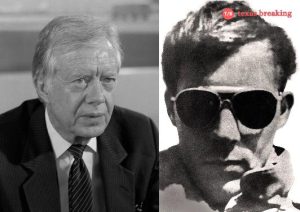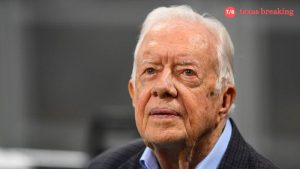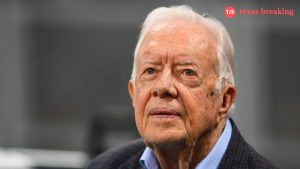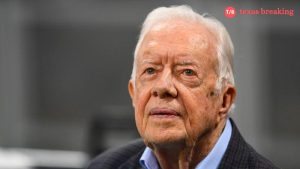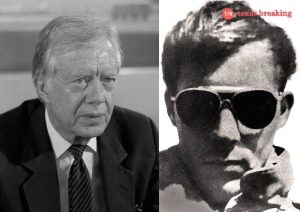On a memorable day in 1974, the paths of renowned journalist Hunter S. Thompson and then-presidential candidate Jimmy Carter crossed in a way that would leave an impact on American political discourse. This notable encounter occurred at the University of Georgia’s Law Day, where Carter delivered a speech that was not just a campaign address but a heartfelt critique of the justice system in the United States. As we reflect on this pivotal moment, it’s clear that Thompson’s observations of Carter during that event reveal a unique perspective on American politics and the role of journalism in shaping public opinion.
Thompson’s Take on Carter’s Vision
Hunter S. Thompson, known for his bold and unconventional style of journalism, was a keen observer of political events. At the Law Day event on May 9, 1974, he watched intently as Carter spoke passionately about important social issues. Thompson noted Carter’s insightful comments about the justice system and how they resonated with the audience. Particularly striking was Carter’s reference to Bob Dylan’s music, highlighting how art can influence our sense of justice and compassion for others.
A Memorable Speech
Carter’s speech was not just a collection of campaign promises; it was a powerful call for change. He addressed the challenges facing the criminal justice system, emphasizing the need for reform and compassion. Thompson remarked on the weight of Carter’s words, which seemed to inspire not only the crowd but also Thompson himself. The event signaled Carter’s approach to politics—one that intertwined empathy with policy and sought to connect with the youth and progressive movements of the era.
Thompson Compares Carter to a Boxing Legend
As the speech unfolded, Thompson couldn’t help but draw comparisons between Carter and legendary boxer Muhammad Ali. Just like Ali, who was known for his charisma and the ability to connect with people on a human level, Carter exhibited a kind of “mean streak” that combined force and compassion. This unique quality, Thompson noted, was reflected in Carter’s commitment to social justice and his willingness to step into the ring against the status quo.
The Cultural Context of the Era
The 1970s were tumultuous times in the United States, marked by political scandals, civil rights movements, and a burgeoning youth culture that sought authenticity and change. For Thompson, who had previously chronicled the chaotic political landscape in his famous book *Fear and Loathing on the Campaign Trail ’72*, this encounter was another chapter in a long narrative of turbulent American politics. His insights during the Law Day event spoke to a broader movement of journalists and artists who sought truth in a world increasingly clouded by disillusionment and cynicism.
A Lasting Impact
This intriguing meeting at Law Day ’74 reminds us of the power of words and the importance of public discourse in shaping our understanding of society. As Carter’s presidency unfolded in the years following this event, his commitment to social issues and human rights would become hallmarks of his legacy. Meanwhile, Thompson continued to push the boundaries of political journalism, using his unique voice to criticize not only politicians but also the media’s role in the democratic process.
Thompson’s Legacy
While Hunter S. Thompson’s bold style and sometimes controversial viewpoints shaped his career, the value of his observations during pivotal moments, like his encounter with Carter, remain crucial to understanding American political culture. As we look back on their meeting, it serves as a reminder that journalism can do more than report facts; it can inspire change and provoke thought. The lasting essence of that day at the University of Georgia illustrates how two individuals from different realms—one a politician, the other a journalist—can influence the worldview of an entire generation.

